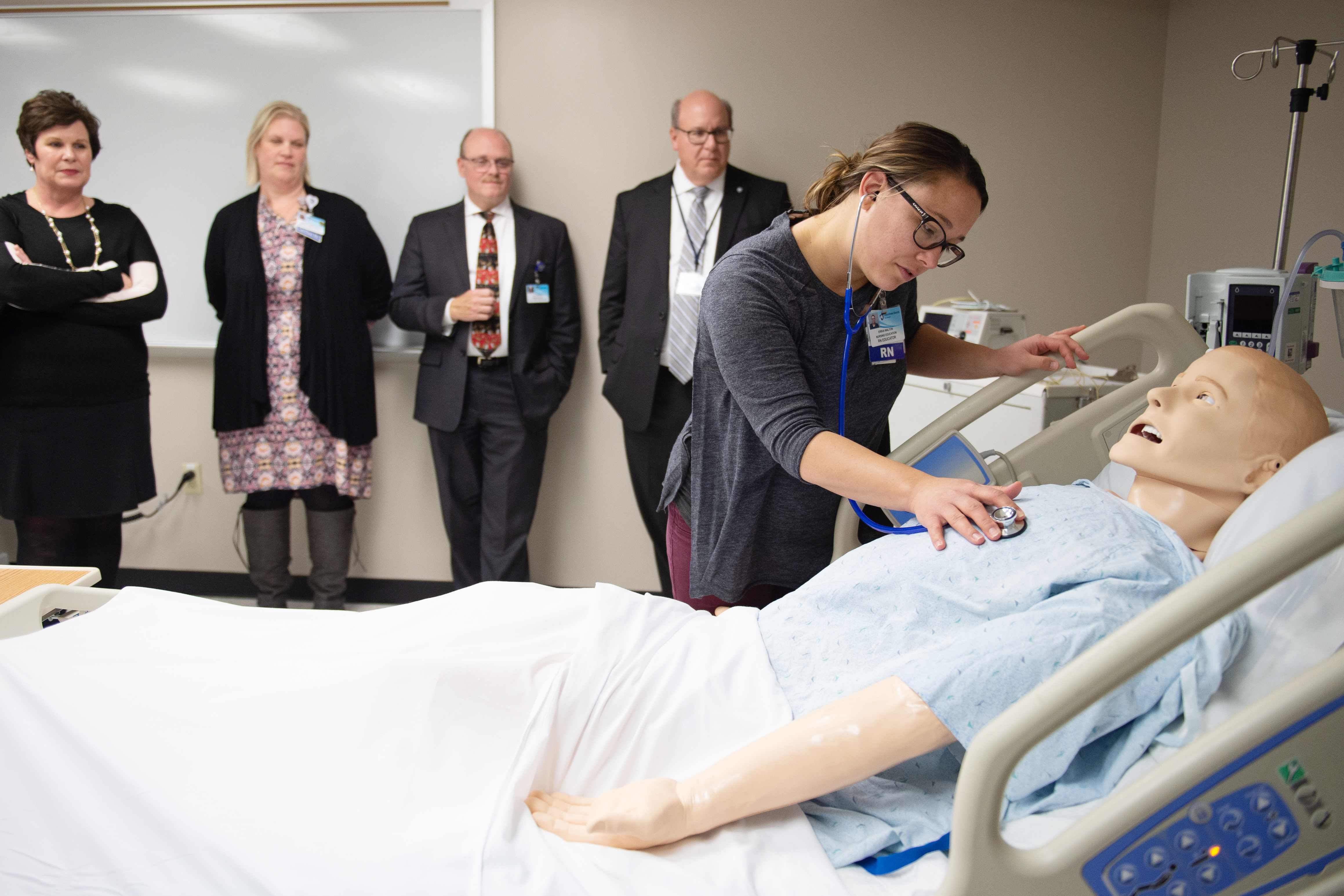Penn State Health St. Joseph unveils new nursing simulation lab in downtown Reading

A new nursing simulation lab at the Penn State Health St. Joseph Downtown Reading campus is now open, offering a learning environment that mimics real-life clinical scenarios. The lab features electronic mannequins and clinical program applications to augment clinical skills, improve patient outcomes, enhance clinical competence and increase clinical teamwork.
The high-tech mannequins cover the age span of nursing care, from newborn to adult, and simulate a variety of patient experiences, including stroke, chest pains and childbirth. Clinical simulation is proven to strengthen critical thinking skills and decision making.
“This state-of-the-art nursing simulation lab will give students and nurses a realistic environment, which is invaluable experience that will translate to their daily practice,” said Sharon Strohecker, vice president of clinical services and chief nursing officer at Penn State Health St. Joseph. “Not only is this a great resource for them, but for the patients we serve and the community at large.”
In partnership with Penn State Berks, the lab will also provide clinical simulations to Penn State Berks practical nursing students that offer interactive, practice-based instruction.
“The dedication of this nursing simulation lab as a new education aid on our Downtown Reading campus demonstrates our commitment to the health of the community as well as training future generations of healthcare workers,” said John Morahan, president of Penn State Health St. Joseph. “Exceptional, easily accessible and lifelike clinical conditions training like this is critical for helping advance the knowledge amongst our valued nurses.”
The nursing simulation lab was made possible by a generous gift made earlier this year by John Langan and Judith Nadell. The gift also provided funding to create the “Mae Langan Nursing Awards,” in honor of John Langan’s mother, a 1934 graduate of St. Joseph’s former school of nursing. The award will be presented annually in May over the next five years.
If you're having trouble accessing this content, or would like it in another format, please email Penn State Health Marketing & Communications.
